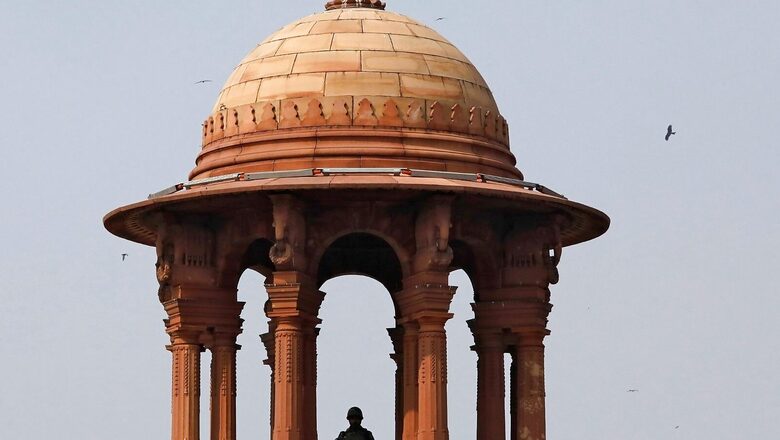
views
As states such as West Bengal and Tamil Nadu oppose Centre’s new proposal to change cadre rules for the Indian Police Service (IPS) and Indian Forest Service (IFS), after the tussle over the cadre rule change in the Indian Administrative Service (IAS), several bureaucrats, seeking transfers due to their marriage, are fighting court battles.
The revised proposal on IAS deputation, sent on January 12, now adds a provision saying if the central government seeks an officer “in specific situations” and “in the public interest”, the state government shall give effect to the decision of the central government within a specified time. The new proposal further adds that if the state government does not give effect to the decision of the Central government within the specified time, “the officers shall stand relieved from cadre from the date as may be specified by the Central government.” This gives the Centre now far greater say, as proposed, over central deputations.
For long, bureaucrats have not only faced deputations but even their transfer cases have taken a hit due to the tiff between the Centre and states. Several bureaucrats have spent years fighting their transfer cases. According to sources, there are 14 to 15 officers on an average whose marriage transfers get stuck in bureaucracy.
When two officers of All India Service (AIS) get married, any one can opt to stay with other. The rule says, “Change of Cadre of All India Service officers -Policy (2004) Change of cadre of All India Service officers is governed by Rule 5 (2) of the IAS (Cadre) Rules, 1954 and analogous Rules in the IFS (Cadre) Rules, 1966. 5 (2) The Central Government may, with the concurrence of the state governments concerned, transfer a cadre officer from one cadre to another cadre.”
In the recent practice, the rule was invoked only in cases of marriage between the AIS officers. A policy in this matter was reviewed in detail by the Prime Minister, and it was decided that inter-cadre transfers will continue to be allowed to AIS officers on marriage to another member, where the officer concerned have sought a change.
• Inter-cadre transfer shall also be permitted on grounds of extreme hardship in the rarest of cases.
• Inter-cadre transfer shall not be permitted to the home state of the officer.
• In cases of inter-cadre transfer on grounds of marriage, the cadre of one of the officers accepts his or her spouse.
This policy was further modified in 2009, which states, “4(i) Where the spouses belong to the same All India Service or two of the All India Services, namely IAS, IPS and Indian Forest Service (Group ‘A’); The spouse may be transferred to the same cadre by providing for a cadre transfer of one spouse to the cadre of the other spouse, on the request of the member of service subject to the member of service not being posted under this process to his/her home cadre. Postings within the cadre will, of course, fall within the purview of the state govt.
News18 sifted through court cases and found some of the transfer cases, where officers had to undergo mental, economical and physical hardships.
Bhavna Gupta, an IPS officer of 2014 batch, had applied for transfer after she got married to an IAS officer of Chhattisgarh cadre in 2017. She waited for two years and received no reply from the state government. Even after obtaining a ‘No-Objection Certificate’ for change of her state cadre, she then had to move Central Administrative Tribunal (CAT). From appealing to CAT to Calcutta High Court to the Supreme Court, Gupta finally got herself transferred. Sources in the bureaucracy say Gupta had “to go through mental, economical trouble to stay with her husband”.
Gupta is not the only one. One female IPS, who also fought a similar battle, told News18, “It was a difficult journey. The IAS (Cadre) Rules, 1954 and analogous rules in other All India Service (AIS) and subsequent clarifications and amendments clearly provide for transfer of cadre of spouses belonging to AIS after obtaining an NOC from involved states. But, in practice, they give discretion to states to keep the applications undecided or reject the NOC on various administrative grounds such as citing shortage of officers, impinging on the right of married officers to stay together.”
She further said the policy was formulated when there were few women officers who were married, the number is “significantly higher now”. “It is time that the policy is redefined, made objective, time-bound and have a grievance redressal mechanism in the light of judgments delivered by CAT, the Delhi High Court and the SC.”
Recounting her ordeal, she said, “Fighting a legal battle in courts to secure a basic right to family as an officer of AIS service comes at a huge personal and professional cost and is not the ideal way.”
Another, Raj Karan, of Bengal cadre, got married to an IPS officer of the Uttar Pradesh cadre. Karan had applied for the transfer and got the NOC but when the day when he was supposed to get released, he was not allowed. The state government had told him that there was a shortage of officers and his transfer was upheld. He also fought the court battle.
One officer, who did not want to disclose his name, said, “We go through huge economic, mental and professional pressure. Running from pillar to post has become normal for us. Despite codified rules, we had to beg to political executives. No reasons are given why we were not released.”
Several bureaucrats, fighting similar cases, and, who wished anonymity, said it was “difficult” to fight such long battles. And rules laid out “should be implemented”.
Read all the Latest India News here



















Comments
0 comment